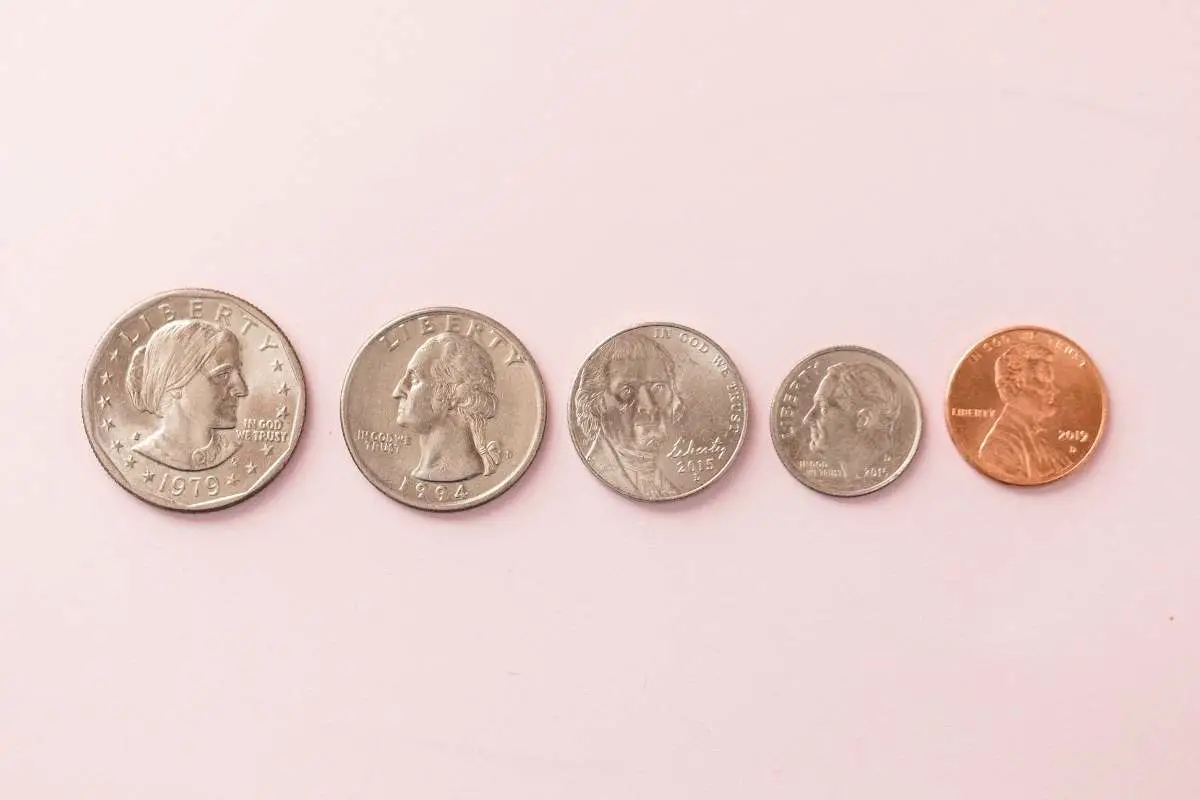There’s sensibly frugal, and then there’s weird frugal. Here are some extreme frugal living tips that are fun to read and might be (might be) worth a try.

Family cloth
You’ve heard of cloth diapers. Anyone can do that. What about using cloth…toilet paper? Yes, this is a real movement with a lot of supporters. Known as “family cloth,” it consists of basically what you would imagine: clean cloths in a basket near each toilet. They are washed in hot water and supposedly come out perfectly clean in the wash.
I’ve cloth diapered for years and don’t feel squeamish about this idea, really. It would be nice to have some disposable toilet paper from time to time, though.
Anyway. Family cloth advocates say it not only saves money but is better for the environment. As a bonus, they have no reason to panic-buy toilet paper every time there’s a crisis.
Dumpster diving
Dumpster diving tends to conjure up images of people eating trash. Pretty gross. But, dumpster divers insist, there is plenty to found that’s perfectly usable. Many restaurants are required to throw out food after a certain period of time, and it’s still edible. Why not climb into their trash cans and get it, right?
And while some of the things on this list are practiced for different reasons, the only real reason to take things out of trash cans is extreme frugality. Unless it sounds fun to you in general, in which case, go for it.
No spend time periods
I firmly believe a no-spend week or month is good for you. It resets expectations and feels good, like a long run. (I’ve never gone on a long run, but just imagining here.).
But extremely frugal people will attempt challenges beyond the simple no-spend month and extend it to seasons or even a full year.
Of course, even the most frugal life has expenses. A no-spend year makes exceptions for housing, gas, and food. And that’s pretty much it. Think you could do it?
Once a month grocery shopping
Venturing back into the realm of the somewhat normal, once-a-month grocery shopping is an attainable extreme frugal living tip.
The idea is that by limiting your time in stores, you reduce impulse shopping and force yourself to be less wasteful.
You can buy in bulk, save time, and learn to live without something you’d like to have until next month rolls around.
Destroying credit cards
We’ve all heard stories of people trying to save money who destroy or limit access to their credit cards. There are a few popular options: freezing them in a giant block of ice, cutting them up, or keeping them in a drawer. The idea is that paying with cash helps you stick to your budget, which is generally true.
But with the rise of digital payments in general, this becomes harder and harder to manage easily. Cash is seen as somewhat annoying in many places. And keeping a credit card in a drawer will hardly stop you from online shopping.
But if you’re dedicated to saving money, this is a great way to help you stick to your cash-only plan.
Rice and beans
It’s hard to discuss extreme frugality (or poverty) without someone bringing up rice and beans. It’s pretty cliche. But have you ever considered actually eating rice and beans? Like… as your only dinner food? Well, it’s amazingly cheap.
Switching to rice and beans for dinner once a week would probably be fine for all of us. But the extremely frugal will argue that rice and beans are a very balanced meal (pretty true) and that it can be a perfectly good dinner forever.
No car/ one-car family
So, much of our income goes to pay for our cars: there’s the car itself, the taxes, insurance, gas, maintenance, registration. This sounds super frugal to the modern world, but even fifty years ago was the norm. And if you think about it, for many families, this could work.
But it seems like extreme frugality to us now, doesn’t it? It’s almost hard to imagine a stay-at-home mom not being able to dash somewhere in the middle of the day because her husband has the car.
If you’re looking for a high-impact way to save money, this could be it. Just be prepared for some weird looks.
Only buy used items
I personally know someone who does it, and it’s sort of an amazing money-saving lifestyle. If he needs something (fridge breaks, raincoat got ruined, need a new desk for a kid), the only possible sources are thrift stores or online marketplaces. That’s it! Furniture stores and clothing stores do not exist to him.
You can absolutely adopt this extreme frugality method. Or at least adapt it.
Try looking at used sources first, and then only getting something new when there’s no other option.
Extreme couponing
They call this extreme for a reason, my friends. It’s a lifestyle. A sort of stressful, weird, crazy lifestyle. (I say this as a person who did this for years.). Some people who don’t understand extreme couponing will say that it doesn’t actually save money and can only buy junk food. Now that’s just not true. When done properly, you can get most toiletries, gifts, and more for free.
The only problem? It takes over your life, requires you to build a huge stockpile, and forces you to go to drugstores every week. It’s part of extreme frugal living because it’s extreme.
If you’re interesting, there are many forums devoted to extreme couponing, but I don’t recommend it for your mental health.
Live in tight or shared spaces
Housing is most people’s largest expense, so the extremely frugal will certainly find a way to save money in this category.
Here are some ideas:
- renting out your basement or spare bedroom for some extra money
- living in a way smaller house than you could afford if you wanted to
- living with extended family longer than most people would think is normal
If you can do one of these, you’ve joined the ranks of the frugal.
Time showers
If you’ve lived with an extremely frugal parent, you’ve probably experienced having a timer in your shower.
Five minutes, young lady.
Hoard free stuff
When I was an extreme couponer, I used to do this. I guess I just had the mindset that I should stock up if I could get it for free. Sort of embarrassing, but here are some examples:
- grabbing free ketchup packets
- stocking up on extra napkins and plastic silverware
- saving old milk jugs for “the future”
- storing every free matchbox and pen you’ve ever gotten
Really, this is a borderline habit. You’re sort of just stealing stuff. You’re also likely just to be filling up—your house with trash.
Skip heat and air-conditioning
Everyone likes to give advice about lowering or raising your thermostat by a few degrees to save money on your utility meals. That’s kid stuff.
Have you ever thought about not using them at all? Even the most well-insulated and efficient home doesn’t run utilities for free. Skipping your HVAC expenses will definitely save money, and it’s definitely a mark of extreme frugality.
If you have a functional fireplace, nice shade in the summer, you could probably do this without being too miserable. Maybe.
Pack meals at all times
Of course, all frugal people hate spending money at restaurants. But only the super frugal are constantly packing lunches when they’re on the go.
Day at the pool? No problem, lunch is packed. Coolers, a basket, the works. We see you, picnic packing mom. Nice work.
Give cheap presents
Gift-giving presents a tricky situation for frugality. It’s one thing to be weird around yourself and your family, and quite another to subject others to it.
Many frugal people are very good and generous gift-givers.
But from the extreme frugal person, gifts are often terrible. You can re-gift, give weird free stuff you to when you opened a checking account, or wrap up some thrift store books. Everyone will know, but it’s a way to save money.
Buy marked-down grocery items
Every grocery store has a section for meat that’s on its last leg, bakery goods no one else wanted, weird damaged produce, and prepared items that are about to go bad.
You could probably eat pretty well on items like this if you’re willing to have a strange diet, eat most of it right away, and freeze the rest.
Ask for discounts
Embarrassing? Yes. Effective? Absolutely.
My parents wrote on their calendar every 60 days to call and ask for discounts from the phone company. My dad would hardly buy a pack of gum without asking, “is there anything you can do on the price?”. He would ask for cash discounts, discounts for picking things up himself, ask if there were any damaged things if the back he could pick up for less.
And usually, he would get a deal!
Would you do any of these to save money?
Some are stranger than others, but they’re all money-savers! Maybe pick one and tone it down a little. At the very least, never feel weird about packing your own water again.

